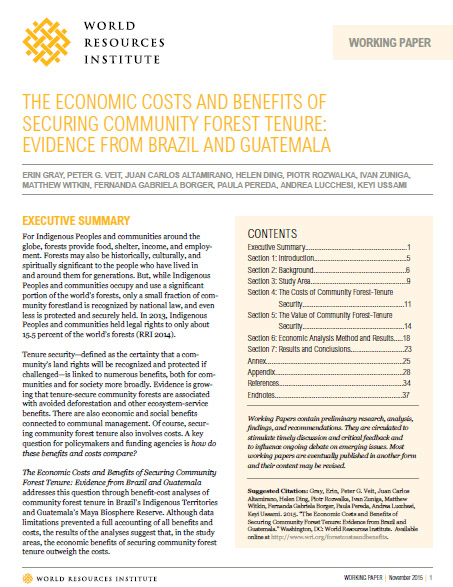National Forest Policy of Suriname.
The main objective of the present Forest Policy is enhancing the contribution of the forests to the national economy and the welfare of the current and future generations, taking into account the preservation of the biodiversity. Three goals of equal weight are contained in the main objective, namely: 1) Economic goal: Forests will be used efficiently and in a sustainable manner in order to enhance the contribution of the sector to the national economy, including foreign currency, government income, and employment.




